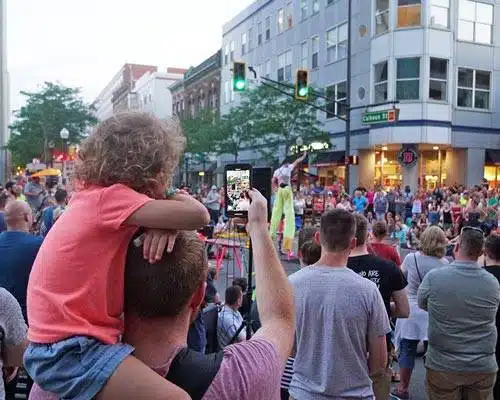Decisions about child custody can be stressful for everyone involved, but they can also be managed amicably. Here are some things to keep in mind, according to Robert H. Bellinger, principal attorney at Bellinger Law Office, 116 E. Berry St., Fort Wayne.
First, it’s the responsibility of the court to determine what’s in the best interest of the child.
“That may not always be what the child wants, and it may not be what the parents want, either,” says Bellinger. “Nonetheless, it’s the foremost consideration for the court, when deciding these matters.”
Indiana law makes room for two types of custody, says Bellinger. Just because a child primarily lives with one parent doesn’t mean that the other parent does not have custody of the child. One parent may have physical custody, while another or both parents have legal custody.
“Legal custody is a different concept that refers to the right of a parent to make critical decisions on the child’s behalf,” says Bellinger. “This includes the ability to make health care and education decisions for the child. When both parents have legal custody of a child, we call it joint custody. When one parent has legal custody of a child, we say that parent has sole custody. However, that does not mean that the other parent does not have visitation rights. It simply means that important decisions are vested with only one parent.”
The reasons for denying a parent legal custody can range anywhere from prior incidents of abuse in the household to the fact that they simply cannot get along with their former spouse.
“In cases in which a parent is opposed to the choices of the other parent, it can create serious conflict for the family,” Bellinger explains. “The court must then weigh the child’s best interests against the parents’ conduct and will render a decision based only on the child’s best interests. Oftentimes, courts will enlist the aid of social workers or psychologists to determine if one or the other parent is unfit to have decision-making power.”
Parents with legal custody have powers and responsibilities. They also have rights to make specific decisions for the child. In most cases, the decisions will involve what school the child goes to, what medical interventions they receive, and their access to religion or cultural institutions.
“Parents who do not have legal custody of their child must accept the decisions of the parent with legal custody or petition the court to review their decisions, under the litmus test of the best interests of the child,” he says.
Bellinger says his job is to argue to the court how his client’s interests are best aligned with the child’s interests.
“When parents put the best interest of the child first and foremost, custody issues often can be managed amicably,” he says. “Other times, more aggressive tactics are needed.”
Learn more about The Bellinger Law Office by calling (260) 428-2214. ❚















